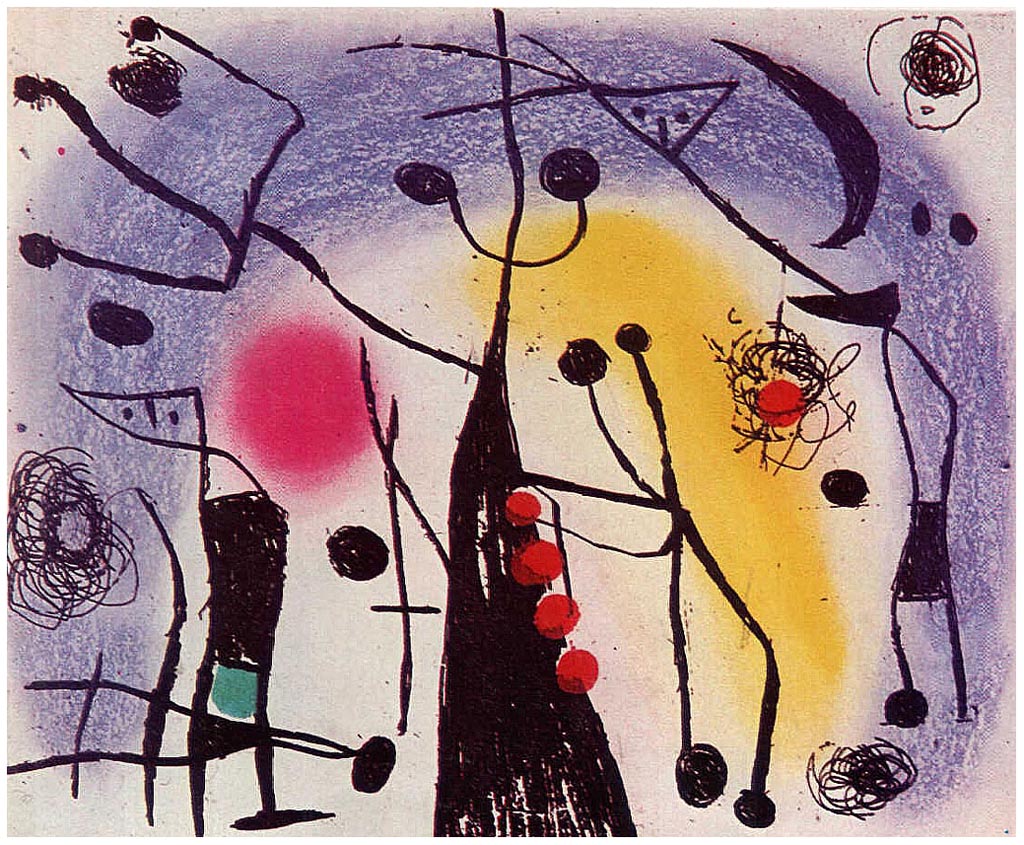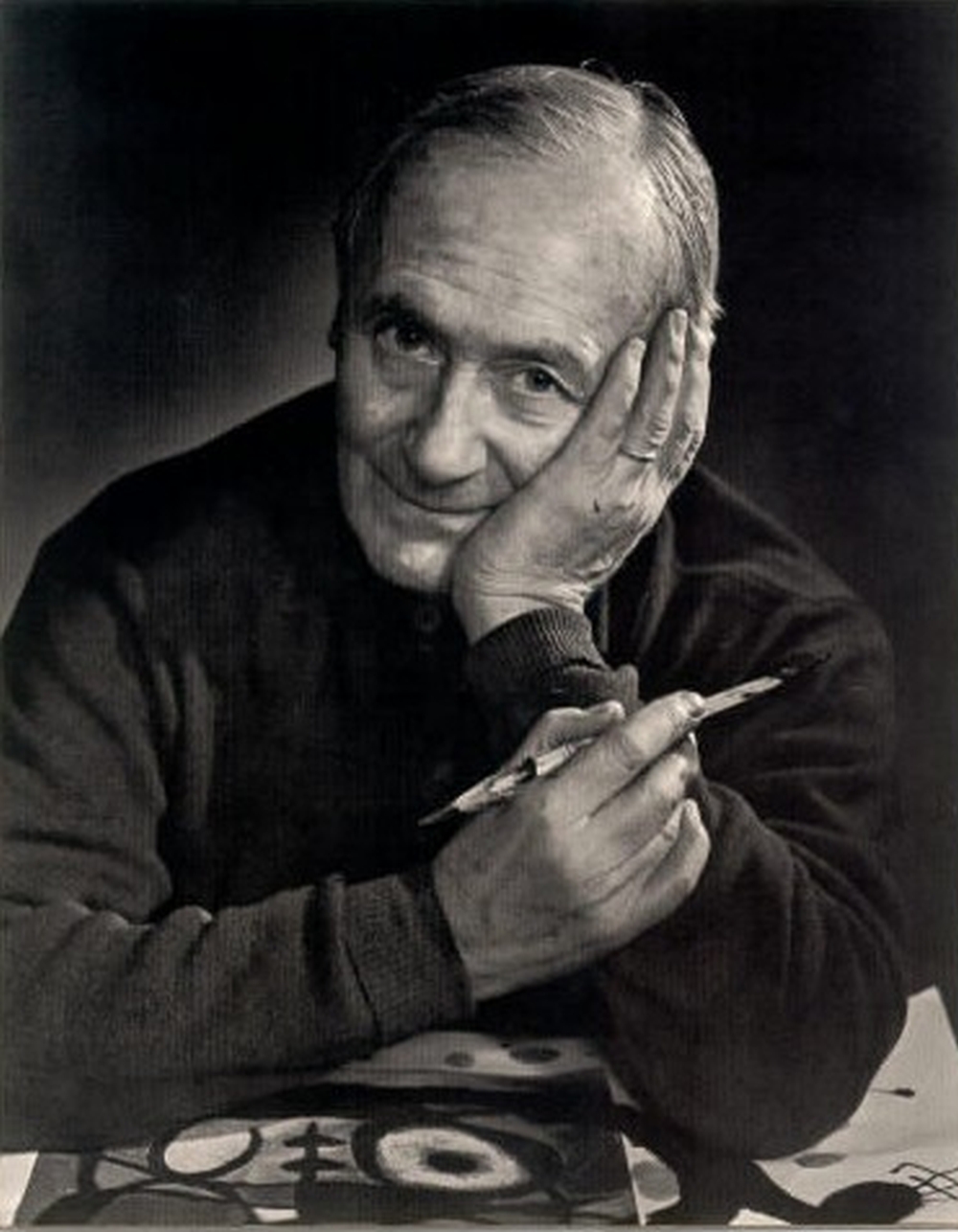An empty canvas, like a blank sheet, holds the potential of infinity. It can start a war or a lifelong marriage in a declaration, inspire a revolution, or save you from sorrow in a painting—everything is unlit there until something is defined. That's why the first line might be so scary. If you feel the responsibility of breaking an endless stream of possibilities by defining what that sheet/canvas will be about, a struggle that keeps stressing me out, maybe we should wonder about Miró's paintings.
They are kind of therapeutic for this specific paranoia. I'm very concerned with closure and logical entanglement, obsessed with details that I must make sense of. This goes all the way from buying soap (the color should match the shampoo, for some reason) to writing about whatever. This anxiety for an imbecile perfectionism is so strong, that sometimes I keep myself from writing something that would give me great pleasure because I haven't quite yet figured out the details of it. The worst part is being aware of this ridiculousness (for the most part).
If you identify, to a greater or lesser extent, with this unease, chances are that you wish that things supposed to be fun could be as easy to do as when you were a kid. Just swim without worrying if you could be doing it at a better time, or simply messing around in the kitchen regardless of the end result. That's why I'm so critical about those discredited paintings like today's with this sentence of disdain: "A child could do that". Because that, my friends, is a hell of an achievement. Maybe the hardest part is to face this impulsive and chaotic world, where not much is left for perfection, embrace the limitations of our commitments, and have a good time with it. Even masterpieces were created upon risks and mistakes and it is not uncommon to hear celebrated writers and painters openly saying they dislike their work, perhaps because it's so difficult to deal with our own expectations.
- Artur Dionisio


 Joan Miró
Joan Miró